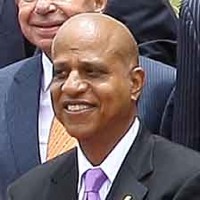Prime Minister Dean Barrow of Belize is pushing international creditors to agree to a debt restructuring after his government missed a payment this week. In an email interview, Heather Berkman, an analyst at Eurasia Group’s Latin America practice, where she takes the lead on the Caribbean, Central America and Colombia, discussed Belize’s debt problems.
WPR: What are the scope and causes of Belize's current economic difficulties?
Heather Berkman: There are a number of factors contributing to Belize’s current financial predicament. First, the economy has struggled to rebound since the global downturn in 2009, and recorded only 2 percent growth in 2011, with similar numbers expected this year. A sluggish tourism sector and declining domestic oil production, which finances about 10 percent of government revenues, translate into fewer resources for the government. Second, although the government has been running a primary surplus for the past few years, it faces considerable liabilities due to high interest payments on its $547 million 2029 superbond and the pending cost of the Dean Barrow administration’s decision to nationalize Belize Telecom Limited (BTL) and Belize Electricity Limited (BEL). Although the government is expecting to run a primary surplus of 2 percent of GDP in the 2012/2013 fiscal year, it estimates it will face a financing gap of about 7.8 percent of GDP next year and 8 percent of GDP in 2014 as it struggles to meet debt payments and cover the looming costs of the nationalization of BEL and BTL. The central bank estimates that the government could owe BTL and BEL’s former owners $270 million -- though this number could end up being much higher.

